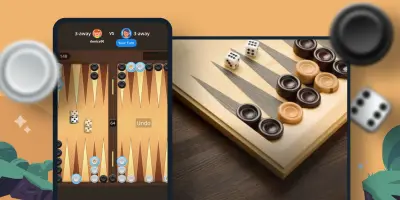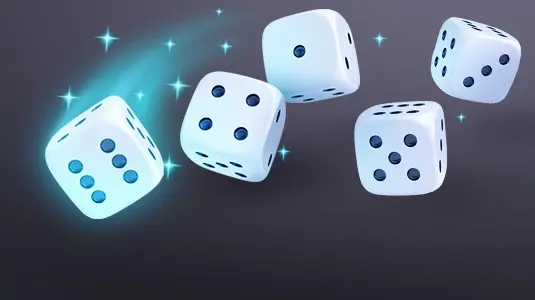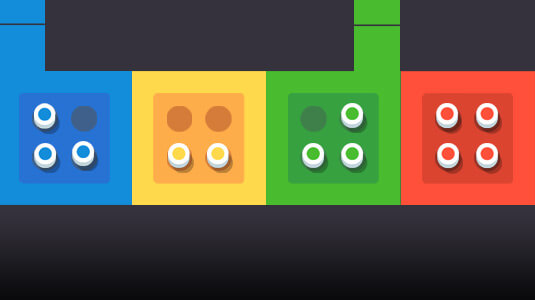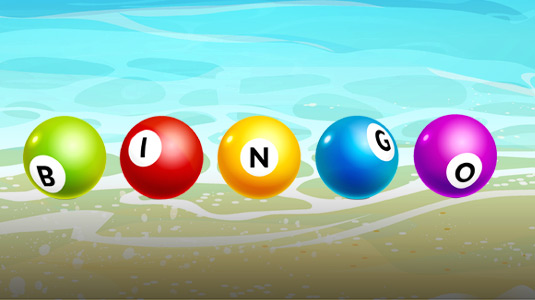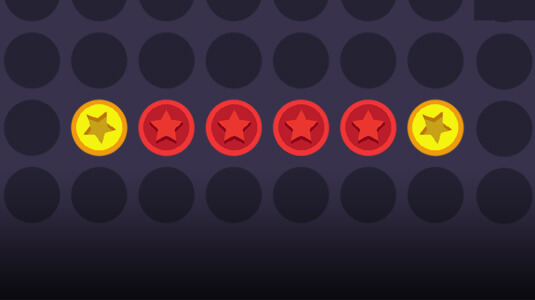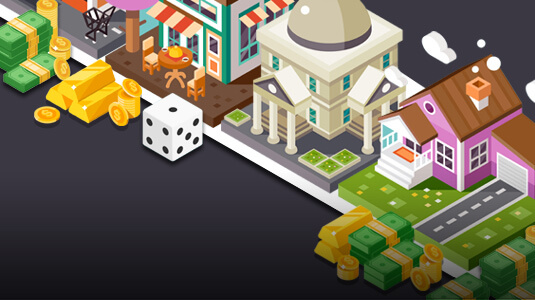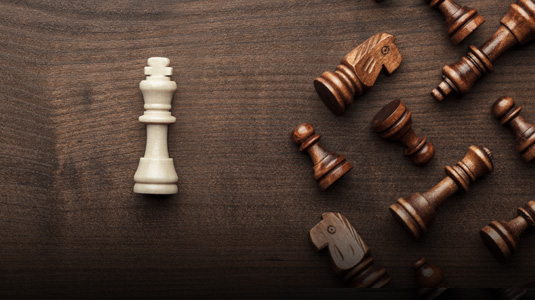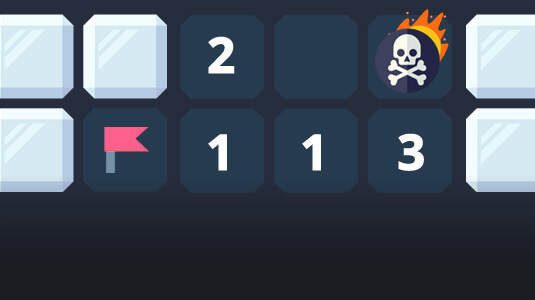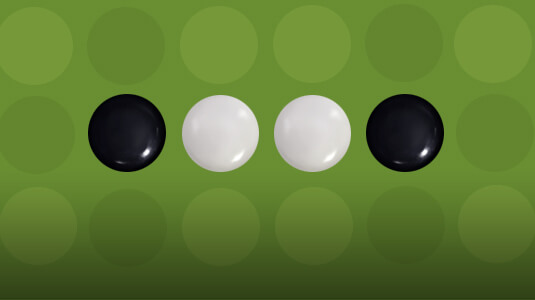 Backgammon
BackgammonBackgammon with live chat. Roll the dice, hit blots, and bear off all of your checkers before your opponent.
Play Backgammon online with friends for free
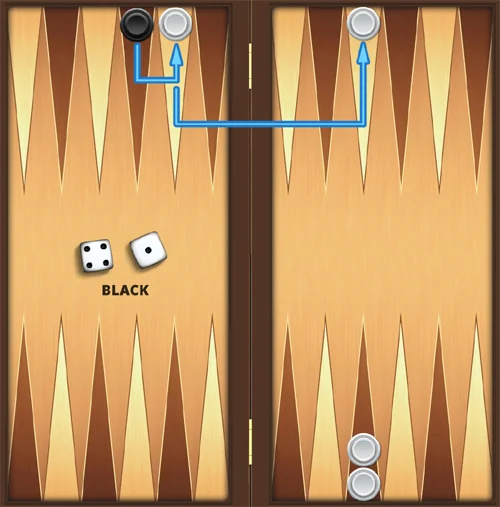
Blots & Bars
If a checker lands on a point occupied by a single opposing checker, which is known as a blot, the opposing checker is removed from the space and placed on the bar. The bar is the vertical strip that separates the left and right halves of the board. It's possible for a single checker to hit two blots on one turn (one with each die roll), or as many as four on a roll of doubles.
In this position, if Black throws a 4-1, the checker marked can move 1 and then 4, bumping two opposing checkers onto the bar.
A player who has one or more checkers on the bar must bring all of them back into play before moving any checkers that are on the board. A checker moves from the bar into the opponent's inner table, entering as many points from the edge as the die roll. In this position, for example, if White throws a 2-4, the checker on the bar may either use the 2 to enter at X or the 4 to enter at Y. The unused number is then used to move the same checker again or to move another checker.
A player must use both dice rolls whenever possible, and may not play one die in such a way as to make the other die unplayable if this can be avoided. A player who can only use one die must do so, and must use the die with the higher number if possible. If no legal moves are possible, a player loses his or her turn.
Top Ranked Winners
Can I play online?
Yes. Install the Plato app on iOS, Android, or macOS to play the full catalog with friends or matchmade opponents. You can also play Ocho online in your web browser — no install needed.
Can I play with friends?
Yep. Tap Create Private Game, then share the invite link or invite from your contacts. When they tap Accept, they're seated at your table.
Is it free?
Yes — free to play and ad-free. If you buy something, it's for looks (themes, profile flair), not power.
Is it fair?
Shuffles, deals, dice, and timers run on Plato servers, not your device. Everyone plays by the same rules and no one can peek at hidden information.
Is it safe?
You can block and report from profiles or chat. Public spaces use filters and human review. Some rooms use Chat Pass to deter spam, and privacy controls let you limit who sees you online.
Live vs. turn-based: what’s the difference?
Both are turn-taking; the difference is the clock. Live uses short timers for quick back-and-forth. Turn-based gives you longer — often up to 24 hours per move in games like Chess — so you can play at your pace.
